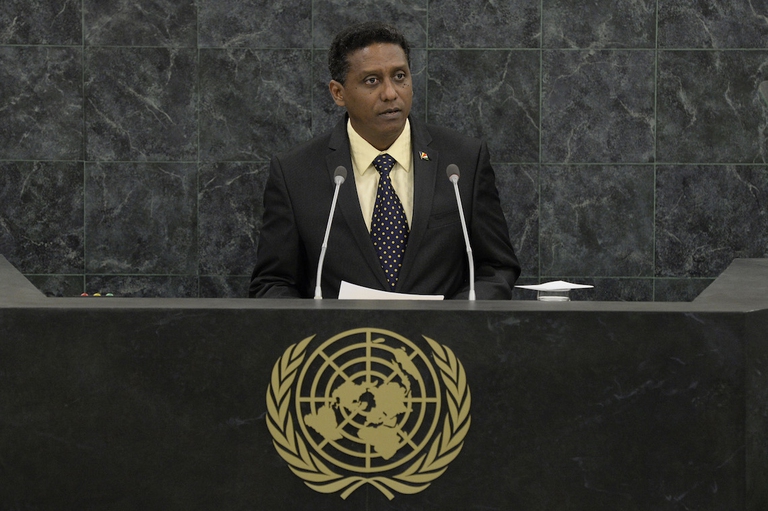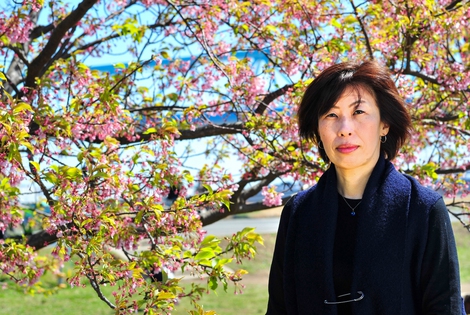
Three people putting the protection of the planet before themselves. Three powerful stories from Latin America, the deadliest region for environmental activists.
Seychelles is finalising a multi-million dollar debt swap in exchange for its commitment to saving the ocean. The deal was initiated by environmental organisation The Nature Conservancy and the government of the western Indian Ocean nation in 2012. “This is the first example of a debt swap focused on marine conservation and ecosystem-based adaptation to climate
Seychelles is finalising a multi-million dollar debt swap in exchange for its commitment to saving the ocean. The deal was initiated by environmental organisation The Nature Conservancy and the government of the western Indian Ocean nation in 2012. “This is the first example of a debt swap focused on marine conservation and ecosystem-based adaptation to climate change in marine systems,” says Rob Wear, Director of Product Development for NatureVest, a unit of The Nature Conservancy that creates investment deals that deliver conservation results as well as financial returns for investors.
Seychelles is a nation of 115 islands. Made up mostly of coastline, 99 per cent of its territory consists of ocean and its economy is almost entirely dependent on tourism and tuna fishing. However, these sectors don’t generate enough revenue to service the country’s national debt, which was equivalent to 6o per cent of the size of its economy, measured in terms of the Gross Domestic Product, in 2015. Furthermore, Seychelles is a small island developing state (SIDS) with a low-lying geography, and is thus extremely vulnerable to climate change and rising sea levels.
It is in light of this that The Nature Conservancy began working with Seychelles on a debt for conservation swap in early 2012. Later that year the country’s Vice President Danny Faure announced that if such swap could be agreed, Seychelles would commit 30 per cent, equivalent to 400,000 square kilometres, of its Exclusive Economic Zone (an area of coastal water under the country’s exclusive economic control) to becoming Marine Protected Areas.
The Nature Conservancy has provided Seychelles with a low interest loan of 21.4 million dollars and helped secure an additional 5 million dollar grant in private funds from Oceans 5, a group of philanthropists working to ensure marine health and conservation. The Leonardo DiCaprio Foundation, which is part of this group, is providing Seychelles with a 1 million dollar grant.
“The restructuring of the debt” is designed to “provide cash flow to finance coral reef management, fisheries management and ecosystem-based adaptation to climate change, and improve fiscal health,” Weaver explains.
Seychelles debt swap will be overseen by the Seychelles Conservation and Climate Adaptation Trust. The local organisation will develop marine protected areas and fish replenishment no-take zones, implement coral and mangrove restoration projects, ensure economic diversification through sustainable fisheries and tourism, and improve social resiliency to climate change in coastal communities.
“Additional SIDS have also expressed interest in concluding similar debt swaps. We see great opportunity to continue this work with these and eventually other countries around the globe over the coming years,” Rob Wear told LifeGate. On top of pushing ocean conservation measures ahead, this project will help Seychelles restructure its debt and provide a model for other island countries at risk.
Siamo anche su WhatsApp. Segui il canale ufficiale LifeGate per restare aggiornata, aggiornato sulle ultime notizie e sulle nostre attività.
![]()
Quest'opera è distribuita con Licenza Creative Commons Attribuzione - Non commerciale - Non opere derivate 4.0 Internazionale.
Three people putting the protection of the planet before themselves. Three powerful stories from Latin America, the deadliest region for environmental activists.
Influential scientist, activist and author Vandana Shiva fights to protect biological and cultural diversity, and against GMOs.
Kimiko Hirata has blocked 13 new coal plants in Japan, but she hasn’t done it alone. The 2021 Goldman Prize winner tells us about her movement.
The Goldman Environmental Prize, the “green Nobel Prize”, is awarded annually to extraordinary activists fighting for the well-being of the planet.
A group of experts in Tokyo suggested pouring radioactive water from Fukushima into the open sea. A marine biochemist explains the consequences of this absurd decision.
We talk to Shaama Sandooyea, activist and marine biologist from Mauritius onboard Greenpeace’s Arctic Sunrise ship in the heart of the Indian Ocean.
Arrested for supporting farmers. The alarming detention of Disha Ravi, a 22-year-old Indian activist at the fore of the Fridays for Future movement.
The decline in grey and humpback whales in the Pacific and Atlantic Oceans has been traced to food shortages caused by rising ocean temperatures.
Water defender Eugene Simonov’s mission is to protect rivers and their biodiversity along the borders of Russia, China and Mongolia.








